The University of Chicago Press, Chicago 60637
The University of Chicago Press, Ltd., London
1996 by The University of Chicago
All rights reserved. Published 1996
Printed in the United States of America
14 13 12 11 10 09 08 07 06 05 4 5 6 7 8
ISBN: 0-226-10071-5 (cloth)
ISBN: 0-226-10102-9 (paper)
ISBN: 978-0-226-15050-5 (e-book)
Library of Congress Cataloging-in-Publication Data
Chambliss, Daniel F.
Beyond caring : hospitals, nurses, and the social organization of ethics / Daniel F. Chambliss.
p. cm. (Morality and society)
Includes bibliographical references and index.
1. Nursing ethics. 2. Hospital careMoral and ethical aspects. 3. NursesJob stress. 4. Role conflict. 5. NursesAttitudes.
I. Tide. II. Series.
RT85.C48 1996
174'.2dc20
95-42835
CIP

The paper used in this publication meets the minimum requirements of the American National Standard for Information SciencesPermanence of Paper for Printed Library Materials, ANSI Z39.48-1992.
Beyond Caring
Hospitals, Nurses, and the Social Organization of Ethics
DANIEL F. CHAMBLISS
THE UNIVERSITY OF CHICAGO PRESS
Chicago & London
MORALITY AND SOCIETY
A SERIES EDITED BY ALAN WOLFE
This book is dedicated to my mother, to the memory of my father, and to my confidant, ping-pong buddy, and friend for life, David Collins.
CONTENTS
Acknowledgments
This project has spanned nearly fifteen years and has been influenced by countless people: research subjects, academic colleagues, friends, and advisors. Only a comparative handful of these people can be named here, but I want the others to know that I appreciate their help and, if anything, am sorry that I havent made better use of their contributions.
First, over a hundred working nurses allowed me to interview them formally, and many more permitted me to watch them at work, listen in on their conversations, and ask them all sorts of questions. In addition, administrators, physicians, and affiliated hospital staff people were helpful as well in a variety of ways. I promised all these people confidentiality at the time, and I thank them now as a group. Their support and openness were crucial.
Kai Erikson guided the earliest phase of the project as my Ph.D. dissertation advisor at Yale. His professional encouragement and personal friendship over the past fifteen years have been invaluable. Rosabeth Kanter, Maurice Natanson, and Raymond Duff, M.D., in various ways shaped my thinking and were wonderful graduate teachers.
Since I left Yale in 1981, my teachers have been colleagues and friends whose intellectual abilities I admire and hope in some small ways to emulate: Lynn Chancer, Randall Collins, Dan Ryan, and Eviatar Zerubavel have been such teachers; and Alfred Kelly has contributed in countless ways, too many to mention, over the past fourteen years. At Hamilton, my senior colleagues in sociology, David Gray and Dennis Gilbert, have been wonderfully supportive from the beginning. Indeed, I believe that Hamilton College as an institution, in particular under the leadership of Dean and now President Eugene Tobin, is unequaled in its support of professionally active teaching scholars. Howard S. Becker, Alan Wolfe, and Robert Zussman, as manuscript reviewers for the University of Chicago Press, made detailed comments as well as strategic suggestions that I have tried to incorporate. And three registered nurses who have been good friends for years provided detailed comments on drafts and answered innumerable questions, and I am deeply grateful to them: Patricia Galloway, Joan Greening, and Deborah Southwick.
Financial support came from several sources. Throughout the project Hamilton College has been wonderfully generous, providing paid leaves through Margaret Bundy Scott Fellowships as well as travel and research funds. A Rockefeller Foundation Fellowship at the Institute for the Medical Humanities, University of Texas Medical Branch, provided time for drafting the main plan for the book and testing my theories against the collected wisdom of a talented and diverse faculty of humanists. Professor Ronald Carson, director of the institute, and his colleagues were always helpful and frequently inspiring. A Fulbright lectureship to the University of Iceland gave me time in a peaceful setting to rework some of the material and visit with nurses in a totally different health care system.
Student research assistants at Hamilton tracked down references, copied articles, reorganized files, kept me on schedule, and carried out a wide array of miscellaneous tasks with enthusiasm: Christina Cosgrove Cawley, Jody Speier Dietz, Bill Russell, and Nina Schmergel.
Ever since we first met in 1981, Doug Mitchell of the University of Chicago Press has been encouraging and intelligently critical of this project and others; I always wanted this Press and this editor for this book, and I am happy with that choice.
Laurie Moses and Theresa George typed the dissertation manuscript and helped in numerous ways in the earliest stages of the work.
Janice Pieroni, a first-rate professional secretary, after years of typing drafts and correcting my sometimes bizarre writing errors, prepared the entire manuscript to exacting specifications. In countless ways over the past eight years she has held my work to her own high standards. I am deeply grateful.
Finally, two friends deserve special notice. Penny Rosel, my undergraduate advisor at New College, not only started me in sociology but, more importantly, has been an extraordinary model for how one should live as a teacher and a human being. And Lawton Harper, a former student who is now in every sense a friend and colleague, really made the completion of this book possible: not least, by calling at 6:30 A.M. every morning to check if I was up and working on it. Of such mundane events are books madeand wonderful friendships as well.
INTRODUCTION
Nursing and Ethics in an Age of Organizations
Nursing is a noble profession but too often a terrible job. At its best, nursing is a calling, a physically and emotionally challenging, humanly fulfilling moral mission. Nurses encounter patients in their most vulnerable moments, sharing an intimacy found in few other human relationships. Sometimes they work with a personal commitment transcending technical performance, a commitment too rarely found in most careers. At the same time, nurses express frustration as their immediate, even dominant, emotional response to their work. I cant do my job, they say. There is no support from the higher ups. Lack of time, of support, of supplies, of respect are mentioned again and again. In letters to nursing magazines, the theme is echoed: I love nursing, but... There is, in many nurses daily lives, the constant conflict between what nursing at its best could bethe idealand what too often it actually isthe reality. For many nurses, the tension is intolerable. By the late 1980s, despite historically high salaries, multithousand-dollar signing bonuses, wide-open career ladders, despite work that produces immediately tangible results, despite great opportunities for learning, and despite the virtual guarantee of employment for nurses who wanted to work,the registered nurses in the United States were not practicing nursing.
Working nurses often feel actively thwarted in their jobs, blocked from doing the meaningful work that was promised them. They feel that their professional birthright has been violated by administrators, by physicians, sometimes by government policies. Perhaps these nurses entered the profession with naive expectations. This younger generation, fresh from collegiate programs with broad classroom experience but little clinical experience, and imbued with an aggressive, independent theory of what nursing could be, comes into the hospital eager to serve, only to suffer the reality shock of limited resources, shortstaffing in the hospitals, and recalcitrant, chronic, incurable patients, who are not at all grateful or appreciative of the young nurses care.we can learn lessons about the psychology of workers in any organization, and about the very possibility for being a moral individual in an organizational world of contending and sometimes divergent interests.


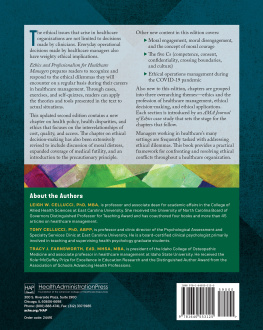
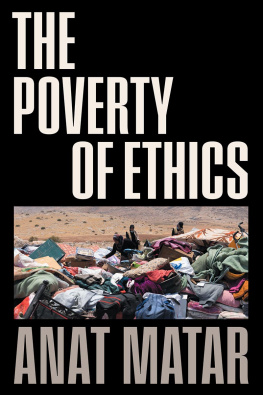
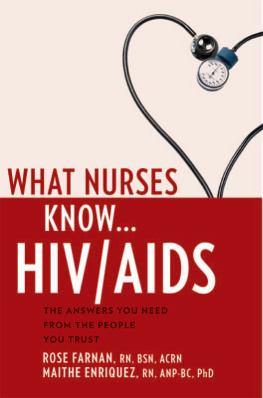
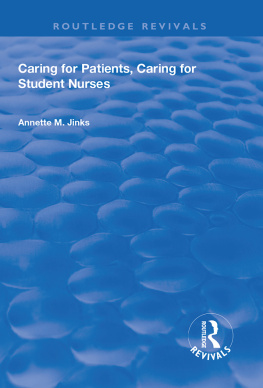


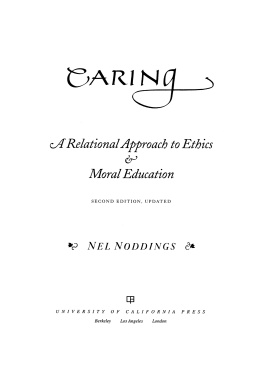
 The paper used in this publication meets the minimum requirements of the American National Standard for Information SciencesPermanence of Paper for Printed Library Materials, ANSI Z39.48-1992.
The paper used in this publication meets the minimum requirements of the American National Standard for Information SciencesPermanence of Paper for Printed Library Materials, ANSI Z39.48-1992.